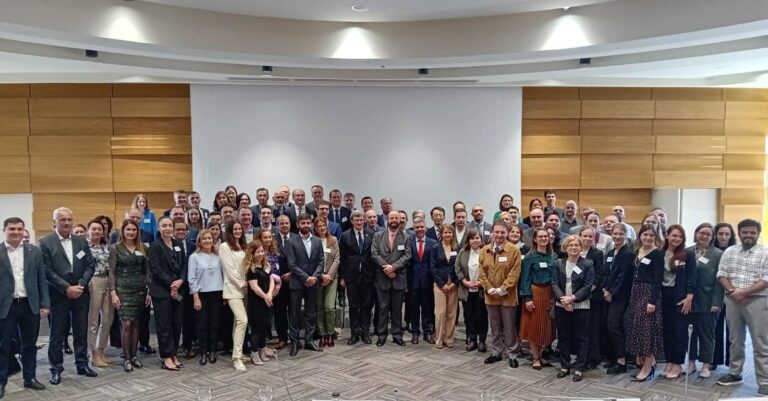The Informal Consultation for Europe and Central Asia were held from the 4th to the 5th of May, in Budapest,
This type of event is designed to build a dialogue on key issues in the region and defining the FAO priorities for the Europe and Central Asia Region for 2024-2025.
Urgenci participated in the consultations, representing the Nyéléni Europe and Central Asia Food Sovereignty Network.
These consultations took place in unprecedented times. The ongoing war in Ukraine, as well as other conflicts in the Caucasus and Central Asia, which were preceded by the COVID-19 pandemic, extreme weather conditions, and the most recent earthquakes in Turkey, not only caused thousands of deaths, millions of displaced people, the destruction of civil infrastructure, and the interruption of supply chains, but also greatly destabilized the entire region.
Together, these factors are having a significant impact on the region’s food security. They additionally contribute to working migration and provide new obstacles for the local food producer communities, which are already struggling due to rising input costs, a labour shortage, shifting market conditions, and limited access to resources.
On the other side, the recent crisis demonstrated once more how essential agroecology is for achieving food security and livelihood resilience, as well as the sustainable transformation of agri-food systems and the achievement of the main objective of the FAO 2030 agenda for sustainable development.
Systems like Community Supported Agriculture have proven throughout these emergencies how resilient they can be, and the fact that this food is produced using agroecological techniques, additionally means that there is no dependence on chemical inputs, which are becoming more and more expensive due to the war in Ukraine and rising fossil fuel prices, helping to keep the price more stable and affordable for everyone.
There is an importance of supporting public policies in the Food and Agriculture sector that strengthen civil society, and Indigenous Peoples’ organisations, that are based on human rights in the spirit of UN Declaration on the Rights of Peasants and Other People Working in Rural areas (UNDROP) and the UN Declaration on the Rights of Indigenous People.
The right to food and sustainable food systems should be clearly separated from financial and private interests.
During our interventions, we asked FAO and its Member States to review the open-door strategy to the corporate and philanthropic sectors. Multistakeholderism is very evident in the UN- Food Systems Summit, its established Coordination Hub hosted by FAO, the World Food Forum and the Hand-in-Hand Initiative. Instead of resolving the current crises, these initiatives will deepen corporate control over our food systems.
Member States must put a halt to speculation and financialisation, land grabs and concentration. We requested FAO to prioritize efforts to improve young people’s, women’s, and starting farmers’ access to land, encourage agroecological land use, and make sure that agricultural land is used to grow food.
We concluded expressing that we are open to cooperate more with FAO and member states on these topics, especially in these times of unprecedented crisis that unfortunately are accompanied by shrinking spaces for civil society.
Photograph by ©FAO/Matyas Temesfoi


